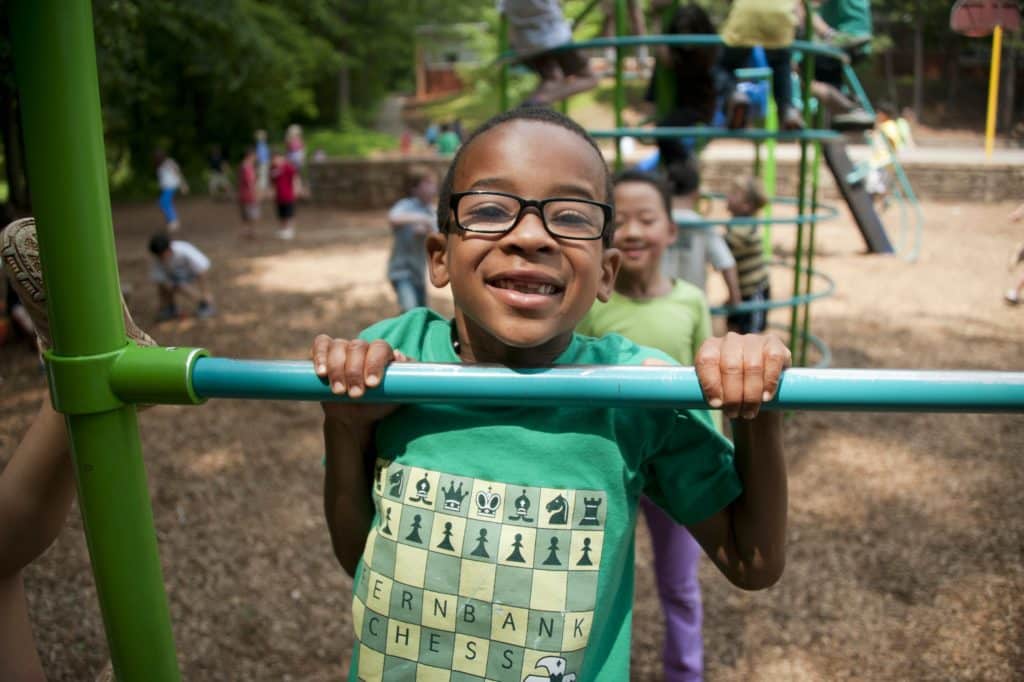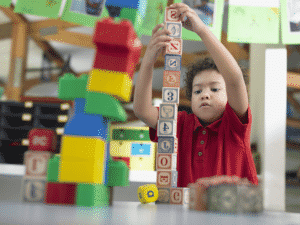Getting ready for ‘Big School’
The Importance of Communication Skills
The new school term is fast approaching and along with our colleagues from the Speech and Language Team we have put together information and top tips so you and your child feel ready for this next big step.
Readiness for school is more about preparing your child for the social, emotional and communication challenges they may face, and helping them with some simple skills that will make starting school a little bit easier.
Remember that the transition to big school is a process which starts in the days and weeks before the first day of term and will last until they feel confident and settled in their new school.
Asking for help
Asking for help is an important skill for children to have when they start school. This might be opening a lunch box, getting their shoes back on the right feet or they may need help with an activity. When children know that they can ask for help, it can reassure them and help them to feel more confident.
Top Tips
- Encourage your child to have a go at things. Try not to do everything for them e.g. let them try and get their shoes on or do their own zip up. This will give them a chance to practice asking for help if they need it.
- Teach your child set phrases e.g. ‘please can I go to the toilet’ ‘please can you help me’
- Talk to your child about who they ask for help from for example teachers, school staff and other children
Making friends
When children start school, there are lots of new children and adults for them to meet. Some children might be used to meeting new people and find it easy to make friends, and others might need a little bit of help and encouragement. There is lots you can do to help your child to feel confident with meeting new people and making friends.
Top Tips
- Let your child practice playing with other children and making friends by taking them to the park or children’s groups
- If your child struggles with making friends, teach them some useful phrases such as ‘can I play?’ or ‘do you want to share?’
- You can also help your child to practice taking turns and waiting for their turn in activities. Board and card games encourage this and also help your child adjust to dealing with making mistakes or losing a game – this is important, because learning new things doesn’t always mean success first time and they won’t always win!
- Talk about feelings and encourage empathy, talk about how your child is feeling e.g. ‘I can see that you’re feeling cross about that’. Encourage your child to develop empathy by talking about how others are feeling e.g. ‘look that child is crying – I think he is feeling sad’
Listening and following instructions
Being able to listen to adults and other children is an important skill for children at school. This will help them to follow instructions, join in with activities and make sense of their day.
Top Tips
- Help your child to practice following instructions by playing fun listening games such as ‘Simon Says…..’ and ‘can you find….’
- A listening activity such as tidying up after play, giving instructions like ‘put the teddy in the box’
- Spend time looking at books together and listening to stories. Try to reduce background distractions and noise to help you and your child focus on the story
- Praise you child’s efforts e.g. ‘you’re doing good listening’, ‘good sitting’
And at the end of the day…
Starting big school is exciting, stimulating and an adventure. Make sure you show interest in what your child has done at school without asking too many questions – allow them to tell you about their day in their own time. They will probably be exhausted at the end of a full day at school so you may need to change some routines to accommodate a tired, hungry four year old.
For more information about starting school and routines check out these links and blogs.
- ‘What is School Readiness?’ Blog Post – LCFC
- Routines Blog Post – LCFC
- 5 tips to help your child get ready for Reception – Family Corner
- Getting Ready for School – Video Round Up – LCFC




